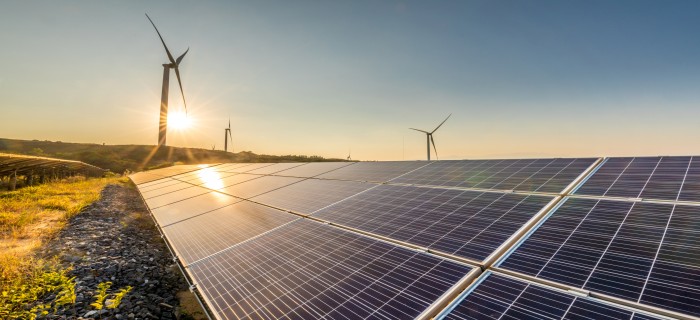
Centre lifts Chinese import restrictions on CPSEs to boost RE projects
In a boost to renewable energy (RE) projects by various central public sector enterprises (CPSEs), the Centre is reported to have exempted them from a 2020 rule that restricted imports from companies based in China and other countries “sharing land borders” with India. The exemption has been provided on four categories of goods — solar photo voltaic cells, wafers, ethylene vinyl acetate, backsheet, and frames; inverters; trackers; and, battery energy storage system components including cells, battery packs, and power conditioning systems, according to a report in the Economic Times.The move will enable the CPSEs to import freely the four categories of goods from any country, including China, which heavily dominates the renewable energy supply chain.
Notably, private companies enjoyed these exemptions. The CPSEs faced competition because the components were cheaper in China than those in other countries. The move will enable the CPSEs to boost their competitiveness by cutting their cost and have a level playing field with private sector players.The government had imposed curbs on such investments amid a bloody border stand-off with China and also averts risks of opportunistic takeovers. That move slowed down the approval process with proposals from the neighbouring nations, including China, piling up. Tweaked to change the public procurement in India, Rule 144 (xi) to General Financial Rules directed that any bidder from a country — for any goods/services including consultancy and non-non-consultancy services and turnkey projects — that shares a land border with India will have to be registered with a competent authority.
NTPC, the state-owned power and energy behemoth, also came under the purview of GFR Rule 144(xi) among other CPSEs engaged in RE projects. However, since import dependence is still high in the RE sector and is mainly addressed through Chinese firms, the registration requirement put the CPSEs at serious pricing disadvantage vis a vis private sector competitors.
CPSEs were largely dependent on engineering, procurement, and construction (EPC) contractors for their imports. This raised the cost of the projects for them amid their scaling up activities that would enable India to achieve its ambitious goal of reaching 175 Gw of renewable energy by 2022 set way back in 2016.The sector has been held back by limited financing, price volatility, and the lack of a consistent policy across states.
“These ideas will serve and impact 919 mn Indians, create 3.4 mn jobs, and grow the overall sector to a whopping $212 bn by 2030- and help deliver India’s Net Zero target of 2070," he added.

.gif)
.jpeg)
leave your comment